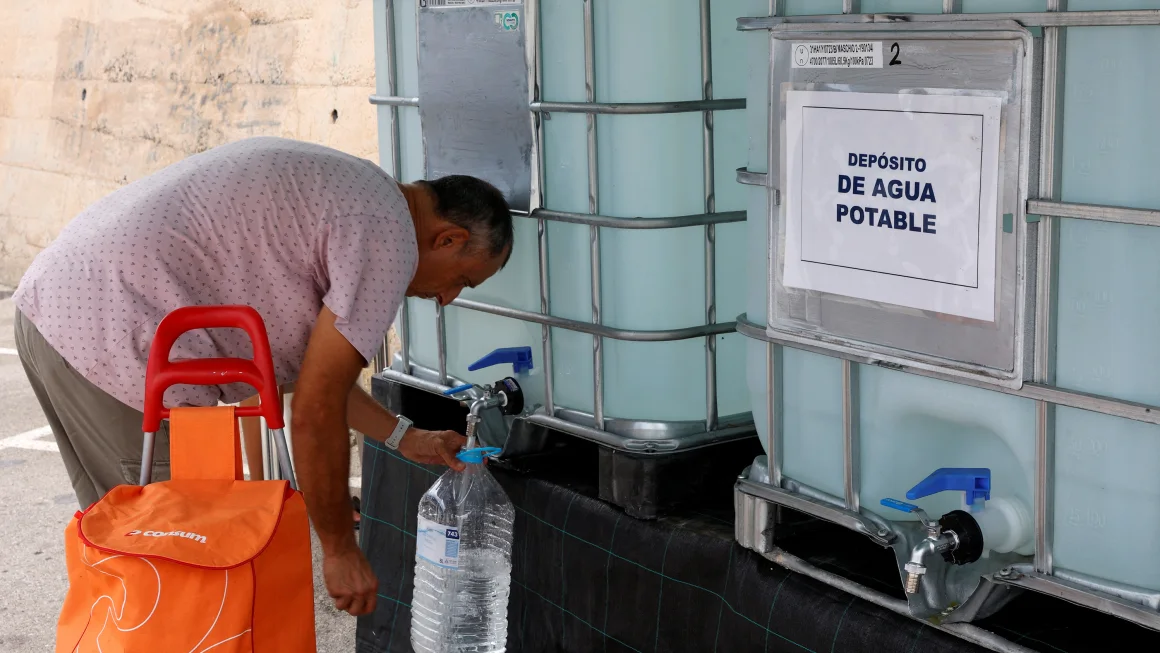
Tourist Hot Spot in Spain Faces Severe Water Crisis as Tap Water Becomes Undrinkable
The Costa Blanca region in southeastern Spain, a popular tourist destination, is facing a severe water crisis. Tap water in several towns has become too salty to drink due to prolonged drought, forcing residents and tourists to rely on bottled or tanked-in water.
The drought, which has persisted for months, has caused groundwater levels to drop, allowing seawater to contaminate the drinking supply. In March, the Júcar River Basin Authority declared an "exceptional situation of extraordinary drought" in parts of Alicante, the province home to Costa Blanca. The situation worsened over the summer as tourist numbers increased, raising water demand.
In Teulada-Moraira, a municipality where the population can swell from 12,000 to nearly 60,000 during the summer, local authorities declared tap water unfit for consumption in August. One well recorded salt levels ten times higher than normal in June. The town has now installed water tanks at distribution points, limiting residents to 20 liters of drinking water per week.
Nearby El Poble Nou de Benitatxell has experienced similar issues, with authorities declaring its water undrinkable and distributing free bottled water to residents. The town’s mayor warned that this situation will persist until significant rainfall replenishes the aquifers or water demand decreases.
However, relief is unlikely soon. José Ángel Núñez Mora, a climatologist at Spain's national weather service AEMET, said the region isn’t expected to see widespread rain until October. Even when rain comes, it will take sustained downpours to replenish the severely depleted water resources. The region has received less than a quarter of its usual rainfall over the past year, an unprecedented shortfall.
The crisis is exacerbated by unusual heat, linked to human-caused climate change, which has intensified the drought’s impact. While this part of Spain is used to dealing with dry conditions, the current drought is testing the region's resilience. According to Núñez Mora, “When droughts are very intense and long-lasting, the impacts become widespread, affecting water resources for human use.”
The water crisis in Costa Blanca is part of a broader trend of extreme weather affecting other parts of Spain. Earlier this year, Catalonia declared a state of emergency due to drought, imposing restrictions on water use across agriculture, industry, and recreation.
As Europe continues to warm faster than any other continent, Spain and other countries are increasingly grappling with the harsh realities of climate change, with extreme heat and prolonged droughts becoming more common and severe.







